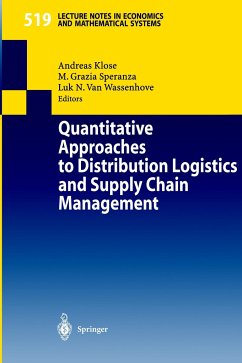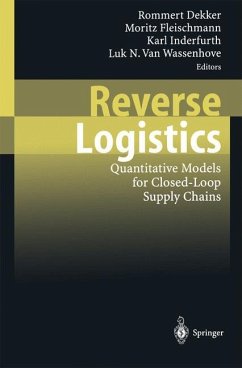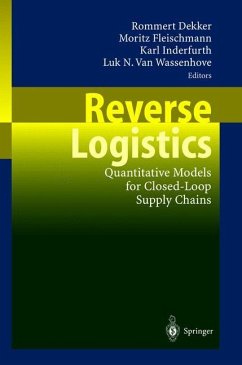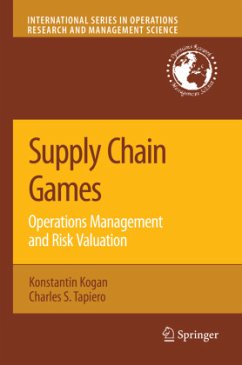
Supply Chain Planning
Quantitative Decision Support and Advanced Planning Solutions
Herausgegeben: Günther, Hans-Otto; Meyr, Herbert
Versandkostenfrei!
Versandfertig in 6-10 Tagen
113,99 €
inkl. MwSt.

PAYBACK Punkte
57 °P sammeln!
In recent years, supply chain planning has emerged as one of the most challenging problems in the industry. As a consequence, the planning focus is shifting from the management of plant-speci?c operations to a holistic view of the various logistics and productionstages, that is an approach in which suppliers, productionplants and customers are considered as constituents of an integrated network. A major dr- ing force behind this development lies in the globalization of the world economy, which has facilitated the co-operation between different partners working together in world-wide logistics ...
In recent years, supply chain planning has emerged as one of the most challenging problems in the industry. As a consequence, the planning focus is shifting from the management of plant-speci?c operations to a holistic view of the various logistics and productionstages, that is an approach in which suppliers, productionplants and customers are considered as constituents of an integrated network. A major dr- ing force behind this development lies in the globalization of the world economy, which has facilitated the co-operation between different partners working together in world-wide logistics networks. Hence, considerable cost savings can be gained from optimizing the structure and the operations of complex supply networks li- ing plants, suppliers, distribution centres and customers. Consequently, to improve the performance of the entire logistic chain, more sophisticated planning systems and more effective decision support are needed. Clearly, successful applications of supply chain management have driven the development of advanced planning systems (APS), which are concerned with s- porting decision-making activities at the strategic, tactical and operational decision level. These software packages basically rely on the application of quantitative methods, which are used to model the underlying complex decision problems c- sidering the limited availability of resources and the need to react on time to customer orders. The core module at the mid-term level of APS comprises op- ational supply chain planning. In many industries, productionstages are assigned to differentplantsand distribution centreshave been established at geographicallyd- persed locations.












